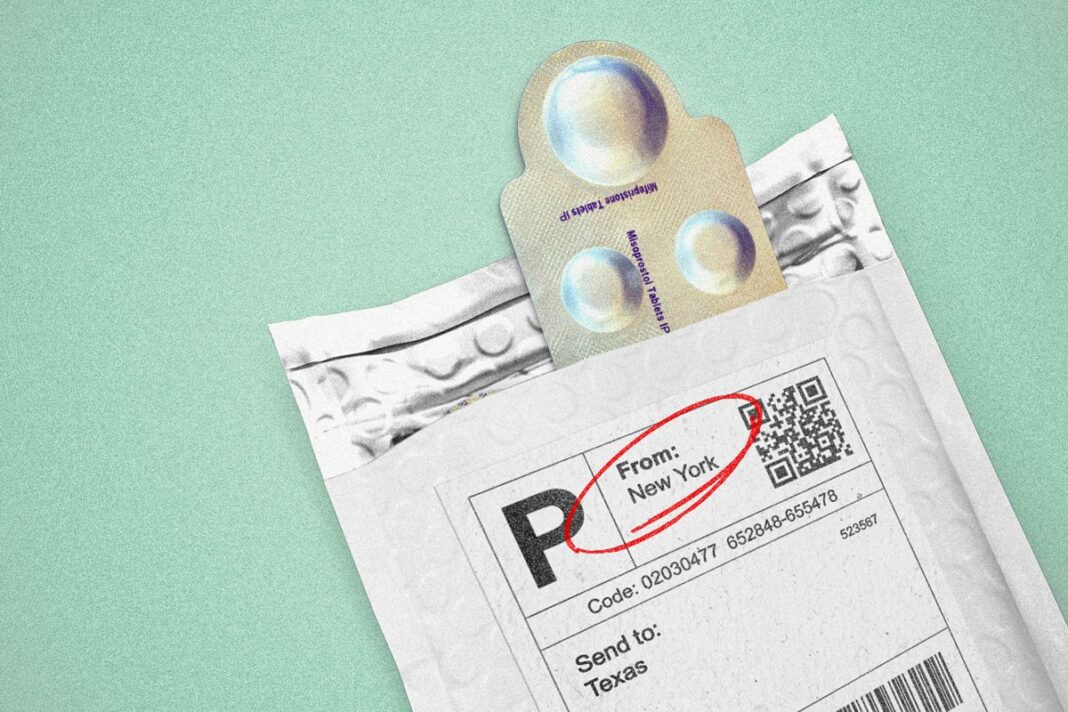A court case involving a New York doctor, shield laws, and U.S. extradition laws is the first legal test between states that have different rules on abortion.
The national abortion battle is moving to a new front, and it’s one that stretches across state lines.
A telemedicine abortion provider in New York has thrust the state’s abortion shield law into the spotlight, setting the stage for an unprecedented state-against-state clash on one of the nation’s most divisive issues.
Dr. Maggie Carpenter of New Paltz, New York, was fined in Texas and charged in Louisiana for providing abortion pills to patients in the two states, where the procedure is all but banned.
Judge Bryan Gantt of Collin County, Texas, ordered Carpenter to pay $100,000 in penalties, plus attorney’s fees, for prescribing abortion pills to a woman near Dallas in violation of Texas law. He also barred the doctor from prescribing abortion medication to future Texas patients.
The Feb. 13 ruling was made just two days after Louisiana Gov. Jeff Landry signed a warrant for Carpenter’s arrest and extradition to his state to stand trial for allegedly prescribing abortion pills to a pregnant minor.
Landry said in a video message that the minor in question was “excited to have a baby” and was planning a gender reveal party.
“Her mom conspired with a New York doctor to get the chemical abortion pill in the mail and then forced that minor to take it,” the governor said.
Landry contended that Carpenter must be extradited to Louisiana to face justice, but New York Gov. Kathy Hochul instructed law enforcement in her state not to enforce the extradition. She said New York enacted its various shield laws with situations such as Carpenter’s in mind.
“Doctors take an oath to protect their patients. I took an oath to protect all New Yorkers. So let me be clear: I will not sign Louisiana’s extradition order—not now, not ever,” Hochul wrote on social media platform X.
The first-of-its-kind stalemate raises novel legal questions, from how states can enforce their abortion laws against out-of-state violators, to the wider ramifications of shield laws on interstate relations.







